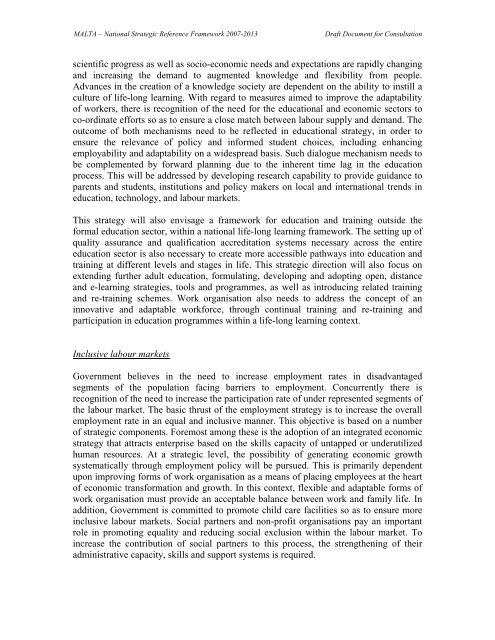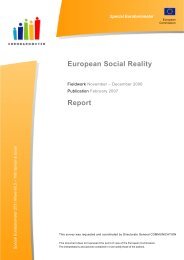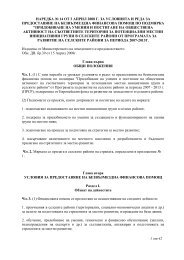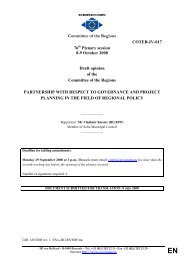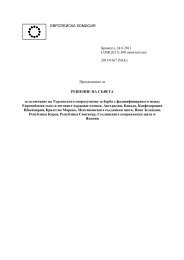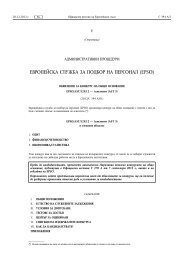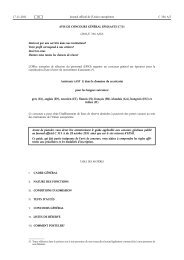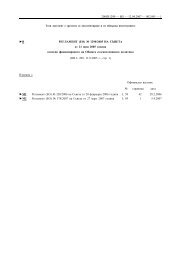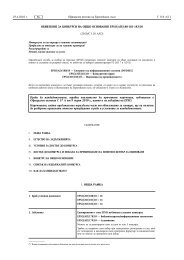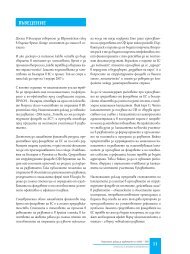National Strategic Reference Framework
National Strategic Reference Framework
National Strategic Reference Framework
You also want an ePaper? Increase the reach of your titles
YUMPU automatically turns print PDFs into web optimized ePapers that Google loves.
MALTA – <strong>National</strong> <strong>Strategic</strong> <strong>Reference</strong> <strong>Framework</strong> 2007-2013 Draft Document for Consultation<br />
scientific progress as well as socio-economic needs and expectations are rapidly changing<br />
and increasing the demand to augmented knowledge and flexibility from people.<br />
Advances in the creation of a knowledge society are dependent on the ability to instill a<br />
culture of life-long learning. With regard to measures aimed to improve the adaptability<br />
of workers, there is recognition of the need for the educational and economic sectors to<br />
co-ordinate efforts so as to ensure a close match between labour supply and demand. The<br />
outcome of both mechanisms need to be reflected in educational strategy, in order to<br />
ensure the relevance of policy and informed student choices, including enhancing<br />
employability and adaptability on a widespread basis. Such dialogue mechanism needs to<br />
be complemented by forward planning due to the inherent time lag in the education<br />
process. This will be addressed by developing research capability to provide guidance to<br />
parents and students, institutions and policy makers on local and international trends in<br />
education, technology, and labour markets.<br />
This strategy will also envisage a framework for education and training outside the<br />
formal education sector, within a national life-long learning framework. The setting up of<br />
quality assurance and qualification accreditation systems necessary across the entire<br />
education sector is also necessary to create more accessible pathways into education and<br />
training at different levels and stages in life. This strategic direction will also focus on<br />
extending further adult education, formulating, developing and adopting open, distance<br />
and e-learning strategies, tools and programmes, as well as introducing related training<br />
and re-training schemes. Work organisation also needs to address the concept of an<br />
innovative and adaptable workforce, through continual training and re-training and<br />
participation in education programmes within a life-long learning context.<br />
Inclusive labour markets<br />
Government believes in the need to increase employment rates in disadvantaged<br />
segments of the population facing barriers to employment. Concurrently there is<br />
recognition of the need to increase the participation rate of under represented segments of<br />
the labour market. The basic thrust of the employment strategy is to increase the overall<br />
employment rate in an equal and inclusive manner. This objective is based on a number<br />
of strategic components. Foremost among these is the adoption of an integrated economic<br />
strategy that attracts enterprise based on the skills capacity of untapped or underutilized<br />
human resources. At a strategic level, the possibility of generating economic growth<br />
systematically through employment policy will be pursued. This is primarily dependent<br />
upon improving forms of work organisation as a means of placing employees at the heart<br />
of economic transformation and growth. In this context, flexible and adaptable forms of<br />
work organisation must provide an acceptable balance between work and family life. In<br />
addition, Government is committed to promote child care facilities so as to ensure more<br />
inclusive labour markets. Social partners and non-profit organisations pay an important<br />
role in promoting equality and reducing social exclusion within the labour market. To<br />
increase the contribution of social partners to this process, the strengthening of their<br />
administrative capacity, skills and support systems is required.


